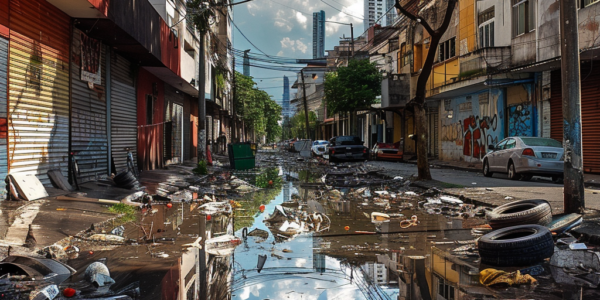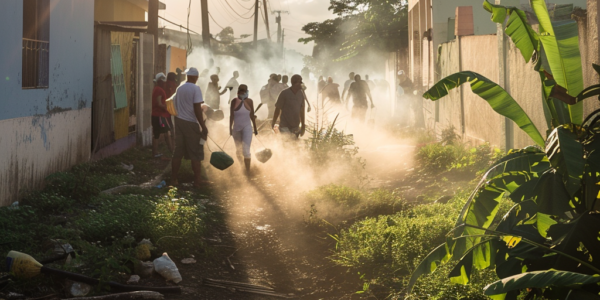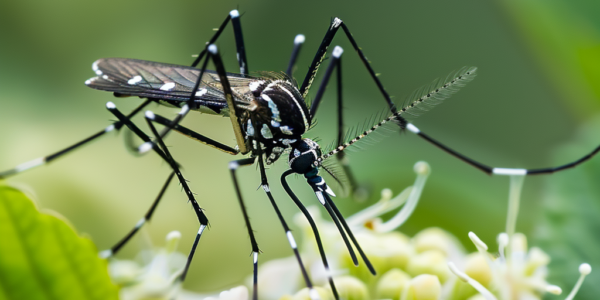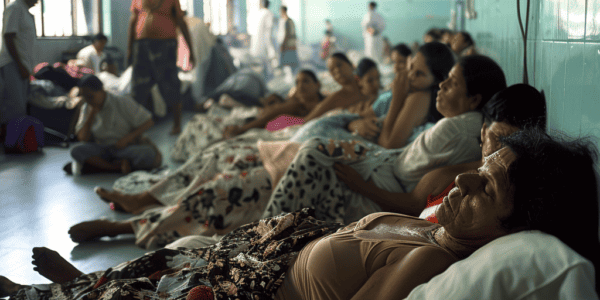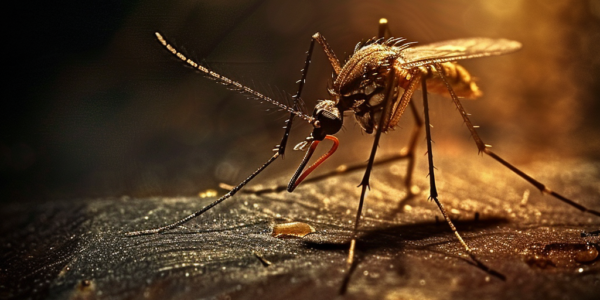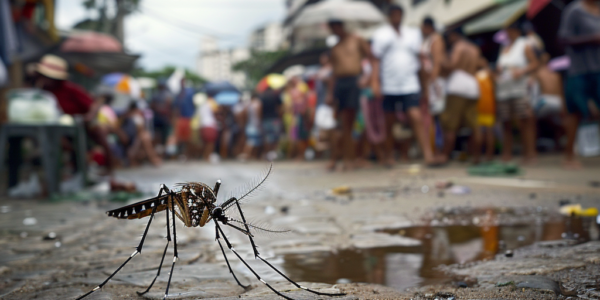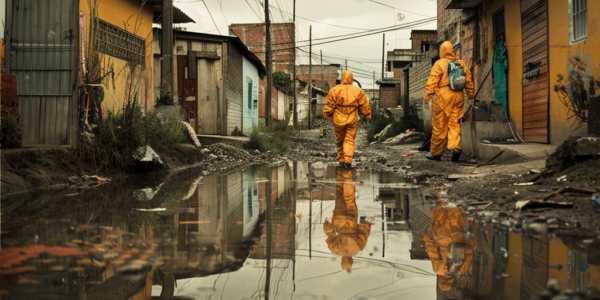Dengue Fever Outbreak in South America
Dengue fever is rapidly spreading in South America, with Brazil reporting over 700 deaths this year. The mosquito-borne disease is characterized by high fever, severe headaches, and muscle and joint pain, and in severe cases, it can be fatal. The surge in cases has been particularly pronounced in densely populated regions such as Sao Paulo, Rio de Janeiro, and Brasilia, attributed to ongoing high temperatures and humid conditions resulting from climate change and the El Nino weather phenomenon.
Puerto Rico Declares Public Health Emergency Due to Dengue Surge
Puerto Rico declares public health emergency due to surge of dengue, with 549 reported cases and concentration in San Juan. Dengue outbreaks widespread in Americas, prompting urgent measures to address the virus’s spread and provide necessary support.
Tiger Mosquitoes Found in Northern France
Health authorities in Normandy have reported the widespread presence of tiger mosquitoes, an invasive species that can carry diseases such as dengue, Zika, and chikungunya. The discovery was made following fieldwork in the Seine-Maritime department, revealing the northward progression of the mosquito in France. This marks the first time the mosquito has settled in this region, making it ubiquitous in mainland France. The presence of Aedes albopictus, commonly known as the Asian tiger mosquito, was initially recorded in France in 2004 and has since spread throughout the country. As of January 1, 2023, the mosquitoes were found in 71 of the country’s 101 departments. Tiger mosquitoes have adapted to the climate in France and northern Europe due to rising temperatures, with winters no longer cold enough to eradicate them. The Normandy health agency has recommended taking practical measures to prevent the breeding of mosquitoes, including the removal of potential breeding sites.
UKHSA Warns Travelers to Prioritize Health Amid Rising Mosquito-Borne Infections
UKHSA warns travelers about rising mosquito-borne infections and urges prioritizing health when traveling abroad. Dengue and Malaria cases have spiked, with majority of cases from South and Southeast Asia. Precautions such as using insect repellent, wearing long-sleeved clothing, and taking antimalarial medication are recommended to reduce the risk of contracting these diseases.
Dengue Fever Spreading Across South America
Dengue fever is spreading rapidly in South America, with Brazil alone recording over 1.5 million cases and 390 deaths this year. The disease is overwhelming hospitals and prompting fumigation efforts in major cities. Epidemiologists attribute the rise in cases to global temperature increases, warning that the crisis could spread to the US and Europe as well.
First Bout of Dengue Fever Can Be Just as Deadly as Subsequent Ones, Study Finds
A new study conducted by researchers at the Indian Council of Medical Research-National Institute of Virology (ICMR-NIV), Pune, challenges the belief that the first bout of dengue fever is usually mild. The study found that the first encounter with the virus can be just as severe and potentially fatal as subsequent infections. This emphasizes the importance of early detection and timely medical intervention to prevent fatalities, highlighting the need for heightened awareness, mosquito control measures, and prompt medical care to mitigate the impact of dengue fever.
Brazil Faces Biggest-Ever Dengue Outbreak
Brazil is facing its biggest-ever outbreak of dengue fever, with nearly 600,000 cases reported in the first few weeks of 2024 alone. The surge in cases is attributed to the combined impact of global warming and El Niño, creating favorable conditions for the Aedes aegypti mosquito, which spreads the dengue virus. Scientists had previously predicted that climate change would lead to a significant increase in dengue cases worldwide, and this is now becoming a reality. Latin America is witnessing an unprecedented level of dengue cases, with Brazil being particularly hard hit.
Peru Declares Health Emergency Due to Surge in Dengue Fever Cases
Peru declares health emergency in response to surge in dengue fever cases, with at least 32 deaths reported. El Nino weather pattern creates favorable conditions for mosquitoes to breed and transmit the viral infection, leading to 31,300 recorded cases in the first eight weeks of the year. Health Minister emphasizes severity of situation and declares emergency in 20 of Peru’s 25 regions.
Dengue fever may be causing spontaneous erections, scientists say
Scientists in West Africa report that Dengue fever may be causing spontaneous erections that can last for hours, in addition to the virus’s other symptoms. A 17-year-old patient exhibited this embarrassing side effect, leading to the theory that the virus can infect blood vessels in the penis, causing plasma to leak and priapism to occur.
Brazil Faces Surge in Dengue Fever Cases and Vaccine Shortage
Brazil is facing a significant surge in dengue fever cases, prompting a state of emergency and concerns about the country’s ability to combat the disease. The approval of the Qdenga vaccine offers hope, but limited availability has hindered widespread immunization. With a shortage of doses and a record number of deaths, the country is grappling with the impact of the climate crisis on disease proliferation.

